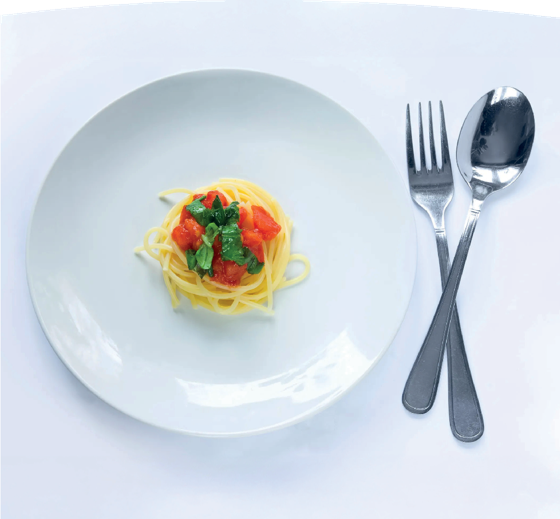Information for patients and visitors
Sometimes you may find you want to eat less food. If you are eating less, it is very important to eat as nourishing a diet as possible.
Ask yourself these questions:
- Are you gradually losing weight?
- Have you lost interest in food?
- Are you missing meals?
If this is happening to you, read on for ideas that may help….
Try to include these in your daily routine:
- 3 small meals daily as well as 2-3 snacks or milky drinks
- Use full cream milk daily (sterilized or UHT) and butter
- Drink at least 8 cups of fluid each Try tea, coffee, fruit juice, fruit squash, soups, and milky drinks. Take drinks after meals rather than before or with them. This will help if you feel full easily
- Include red meat, chicken, fish, well-cooked eggs, full-fat cheese, yoghurt, nuts, beans, or lentils
- Include a serving of bread, potatoes, rice, pasta, cereal or chapattis with each meal. Choose whole meal varieties where possible
- Try to include fruit and vegetables daily. These are packed full of fiber and antioxidants. Drink a glass of orange juice, apple juice, or squash fortified with Vitamin C if you find fruit difficult to digest.
How to enrich your food
To a pint of full cream milk add: 2-4 tablespoons milk powder to make enriched milk. Use in place of ordinary milk or water to make up coffee, packet soups, sauces, jelly, milk pudding, porridge and on other cereals.
To milk based sauces, add: Cream/ evaporated milk, grated cheese.
To puddings add: Cream, custard, butter, evaporated/condensed milk, ice cream, jam, honey, syrup, dried fruit.
To soup add: Grated cheese, cream, dried milk powder, evaporated milk, dumplings, baked beans, pasta.
To potato and vegetables add: Grated cheese, cream, butter, salad cream, milk-based sauces, fried onions.
To breakfast cereals add: Enriched milk, evaporated milk, cream, yoghurt, syrup, honey, sugar, fresh or dried fruit.
More ideas to increase your calories:
Fats and sugars provide energy and help foods taste good. Use them generously.
Have a pudding once or twice a day, such as yoghurt, milk pudding, trifle, ice cream, cake, fruit pie, sponge pudding with custard or cream, ready prepared desserts.
Buildup, Complan, and Vita food are enriched drinks sold in chemists and supermarkets. Sweet and savory flavors are available. They may be taken as a drink between meals or be used to replace a meal occasionally. The natural or unflavored varieties may be added to puddings and soups. Your Specialist Nurse or GP may also suggest some prescribed food supplements and fortified drinks.
Cakes, pastries, biscuits, chocolate, crisps, provide extra energy when eaten with meals. Take care that they don’t spoil your appetite for more nourishing foods, but afternoon tea with cake can boost your intake.
Alcohol in small amounts can stimulate your appetite. Check with your doctor or chemist if you are taking any medication.
Quick nourishing snacks
Sandwiches: Filled with cold meat, bacon, tinned fish, cheese, hardboiled egg, peanut butter. Use different types of bread and rolls for variety. Add interest with pickles, relish and sauces.
Toast: With well cooked eggs, pilchards, sardines, baked beans, cheese, ravioli, spaghetti with cheese, pate and mushrooms.
Snacks: Crackers or digestive biscuits with butter and cheese. Toasted crumpets/teacakes with cheese, honey.
Yoghurt and fruit.
Fruit cake/malt loaf and cheese.
Soup made with added cheese/cream and bread or sandwich. Breakfast cereal and enriched milk.
Desserts: Yoghurt, tinned fruit and evaporated milk, cake, ice cream, mousse, milk pudding, milk jelly, custard, rice pudding, bread & butter pudding.
Light meals: Bacon and egg with tomatoes and toast.
Sausages with baked beans and bread or tinned potatoes. Oven ready fish/fish fingers with peas and oven chips.
Kippers or smoked haddock with bread. Macaroni cheese with tomatoes.
Jacket potatoes with cheddar or beans. Cauliflower cheese with green beans. Corned beef hash.
Tinned stew or casserole with instant potato.
Making meals easier
If you are finding cooking difficult or tiring do not be afraid to use convenience foods. Supermarkets and some large stores have a range of frozen, chilled or packet ready meals.
They may seem expensive, but you are not having to prepare foods yourself and will save time, energy, food wastage and cooking fuel.
Frozen meals delivered from your supermarket may help.
Add butter on the top of vegetables, cream to puddings, grated cheese to savory dishes.
If you have dental problems, or dentures which don’t fit, contact your local dentist.
Between meal snacks
Add cold milk to:
Blackcurrant juice, such as Ribena, C-Vit, milkshake flavorings, mashed banana, yoghurt. If you have a blender, make milkshakes with milk, fruit and ice-cream.
Add hot milk to:
Malted drinks, such as Horlicks, Ovaltine, Bourneville Cocoa or drinking chocolate, instant soup, Bovril or Marmite.
Frequent hot drinks are comforting and warming. You may like to have a flask by your chair or bedside so that you can have a hot drink without getting up.
Store cupboard ideas
If you can’t get to the shops because of bad weather or illness, it’s useful to have a store of some basic foods.
Milk: Long-life, dried or evaporated milk, tinned milk puddings, jellies, rice puddings, custard.
Meat and fish: Tinned corned beef, ham, minced beef, sardines, pilchards, tuna and salmon.
Drinks: Cocoa, malted milk and pineapple juice.
Fruit, vegetables, and fruit juice: A variety of tinned fruit and vegetables, including baked beans, dried fruits; long-life pure fruit juice; instant mashed potato; lentils and other pulses such as chickpeas, beans and peas.
Cereals: Porridge, breakfast cereals, crackers, crispbread, plain biscuits, pasta and rice.
Other: Tinned and dried soups, meat and yeast extract; stock cubes.

